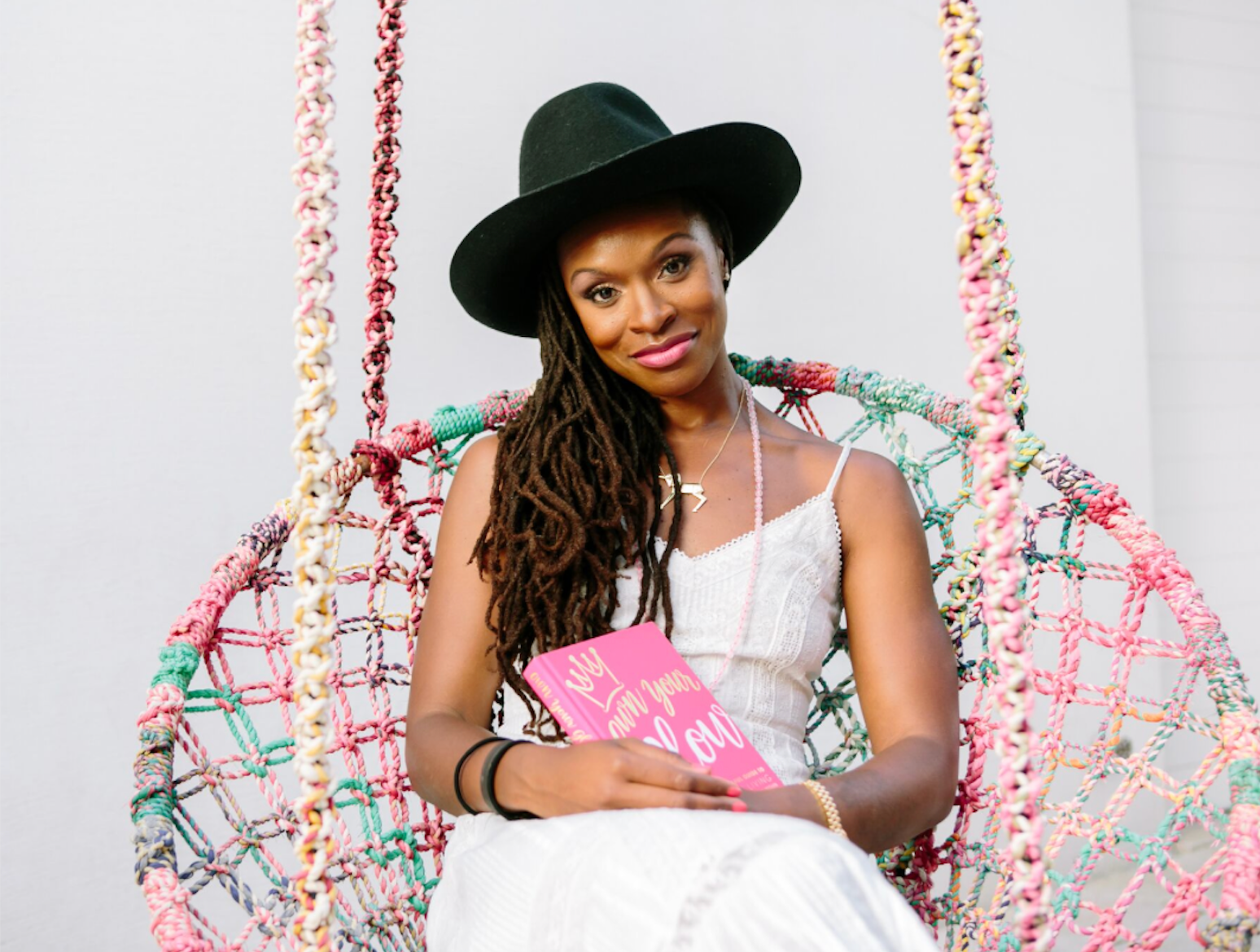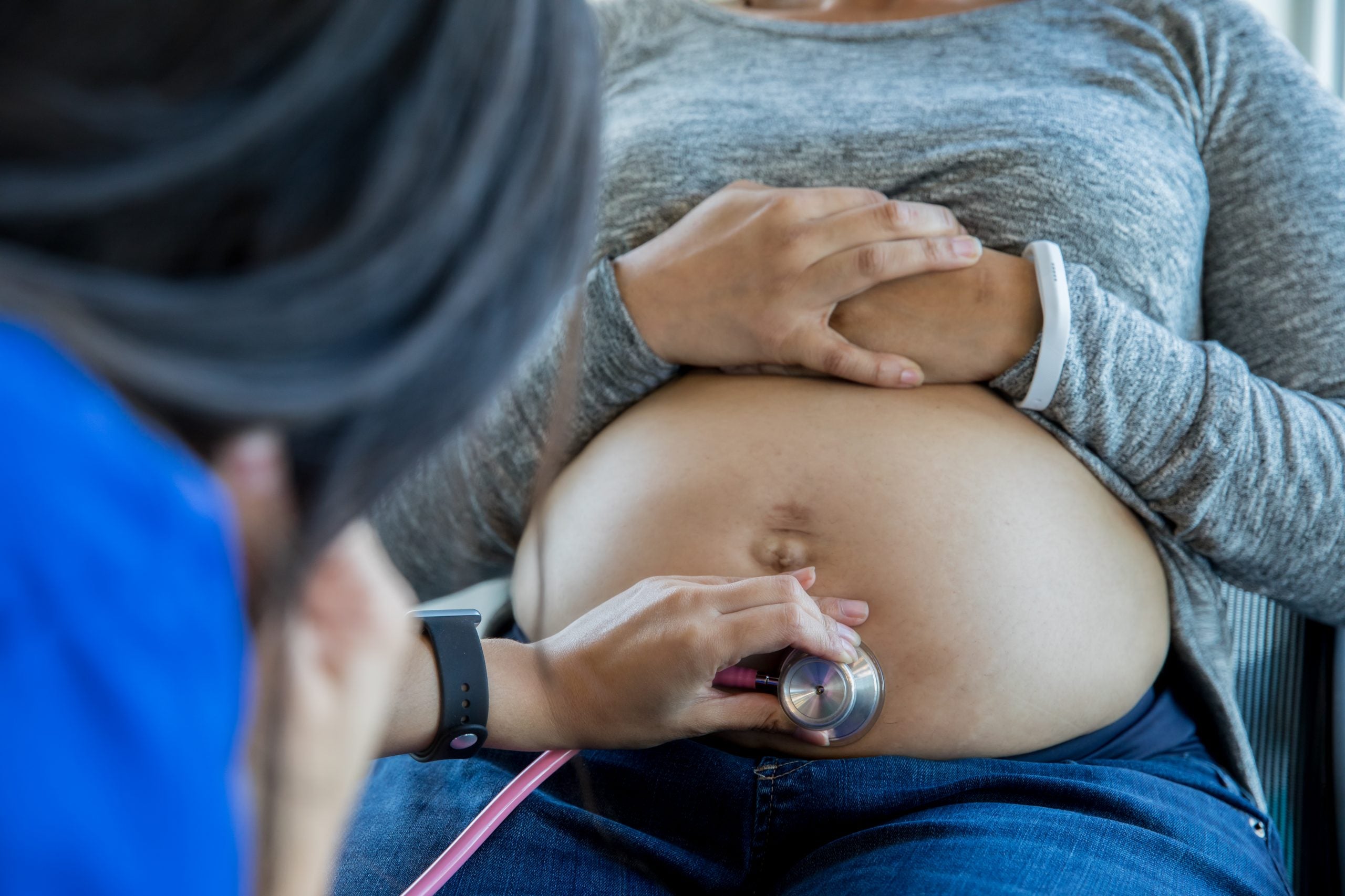Throughout Black Maternal Health Week, ESSENCE has been focusing on the various socioeconomic factors that make giving birth more dangerous for Black women. The novel coronavirus outbreak certainly hasn’t helped the situation. Pregnant moms now have great concerns for the safety of themselves and their babies. Fear and worry clouds what is supposed to be one of the happiest times in their lives.
That’s why celebrity doula and founder of Mama Glow, Latham Thomas, has been devoting her time to serving pregnant women during this global health crisis. Through a series of webinars, like the upcoming session “Pregnant During a Pandemic: Learn EFT Tapping to Release Stress & Anxiety” Thomas is steadily building an information hub for pregnant women to relieve their stress and help them reclaim their joy.
ESSENCE chatted with Thomas this week on how pregnant women can safeguard their mental health during this challenging time, and what tools she’s offering to help lighten the burden.

ESSENCE: Can you discuss the importance of mental health management for pregnant women?
Mental health support during the prenatal period is important especially during a time like this when women have the extra stress of the consequences of COVID-19 to consider. In the U.S., 1 in 7 women experience postpartum depression and anxiety. Of that number, only 15% of women are receiving treatment each year. Black women are less likely to receive care for depressive symptoms. We should note that postpartum depression is a perinatal mood disorder or PMAD, and some people may have anxiety or depression that can be mild or severe. It doesn’t self-resolve, which means without treatment, the symptoms can amplify. Adequate community support is key, there are digital support groups and HIPPA compliant mental health counseling support and many providers are offering their services on a sliding scale. If the new mother has access to mental health support during the prenatal period, the risks for postpartum depression decrease.
Joy is our birthright and black women deserve to envision a birth that is blissful.
How does joy play a role in a healthy pregnancy and delivery?
Joy is crucial because we are inundated with information about traumatic birth outcomes affecting our community disproportionately. Joy is our birthright and black women deserve to envision a birth that is blissful. We do not need to internalize the haunting stories that have affected birthing women in our community. We need to allow ourselves to feel, receive and embody pleasure. Engaging in practices that bring you joy will help to reduce stress. At Mama Glow, we are committed to education and holding space to protect the birth experience. As a doula, part of my work is to provide emotional and psychological support to my clients. I see preserving joy as part of that.
What is your message to pregnant women right now who are isolated, at home, and battling fear/anxiety?
Be tender with yourself. Ask for the help you need. This is a critical time to expand our capacity to receive. Postpartum is often referred to as the 4th trimester. We are born into new motherhood and we are really vulnerable. Call on your community. Start to build your sister circle of support, during pregnancy so you have a crew to check in and lean on when the baby comes, even if that’s a virtual shoulder to lean on. There are so many accessible programs that you can tap into also. I strongly suggest therapy apps like Talk Space, For Hers and also via telemedicine. Podcasts like “Therapy for Black Girls” is such a great space to start to learn more about mental health support. Assign a designated “safe person” to check in with, if you’re just not feeling yourself. Know that it is never too late to start working with a doula.
What are some ways that pregnant women can relax at home and stay calm during this pandemic?
Pregnant women should do what makes them feel good. Self-care is checking in with yourself on a moment-to-moment basis to evaluate what you truly need. That could include sex and or self-pleasure, reading a good book, drawing, baking, taking a walk safely, getting some exercise, journaling, taking a bath or whatever you enjoy. We are inside and have to do our best to keep life fresh and not become stressed by our circumstances. Orgasm is one of the most powerful ways to combat stress. Be consistent so you have something you can always look forward to doing for yourself in the midst of all that’s going on.
How can you tell if your stress levels are affecting your pregnancy?
Stress is not something you can quantify, but it is something you can feel. There are 3 types of stress – acute stress, episodic stress and chronic stress. Acute stress is brief and caused by reactive thinking. Episodic stress is similar to acute stress but is ongoing and leads to emotional and cognitive distress. Chronic stress is the most harmful and if left untreated can damage your overall health. What causes chronic stress? Poverty, abuse, unemployment, family dysfunction and systemic racism are examples. It’s important to asses what is happening in your life, take an inventory of what causes you emotional distress and affects your ability to maintain wellbeing and peace of mind. Having access to stress management techniques like, yoga, deep breathing, prayer, therapy, reiki, massage, exercise, intimacy, a support circle are all ways that can help us reduce stress.

For those women afraid of the possibility of having to give birth alone based on new hospital restrictions, what would your advice be to them?
First, check the policies at your place of delivery as they are constantly changing. If you have time or the desire, explore an out of hospital birth. Understanding your rights as a birthing person is key, and learning how to advocate for yourself and your needs can help you feel more at ease. Take birthing classes online and enlist the support of a virtual doula to get you prepared for the experience. You can also connect with family members virtually during birth.
What’s the number one question pregnant women ask you these days about mental health?
It’s not a question so much at its a pervasive state of mind, which is fear. Fear of pain or a poor birth outcome are the most common fears. How I address this is two-fold, First, I listen to their concerns, I affirm and validate their feelings, and I offer education and support. Next, I ask if they are interested in talking to a counselor while we work together. If so, I suggest providers that I know will handle them with care.
What is the biggest challenge pregnant women face currently?
It’s hard to say what the biggest challenge is when everyone is affected and responds to stress differently. But one of the things that will be challenging for many that are used to having family and friends around is the postpartum period. The idea of folks coming by to see you and the baby, bringing some food, and helping around the house is not an option right now. So having a baby during this period of quarantine can be extremely isolating. Folks should check in daily with new moms. FaceTime or do family zooms. Set up a group chat or send grocery gift cards electronically. Mom should use this time to get the home organized for the new baby so they have systems in place when the baby arrives. I also recommend hiring a virtual postpartum doula to support you through the process.

